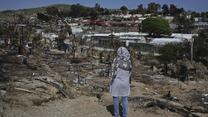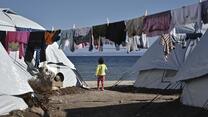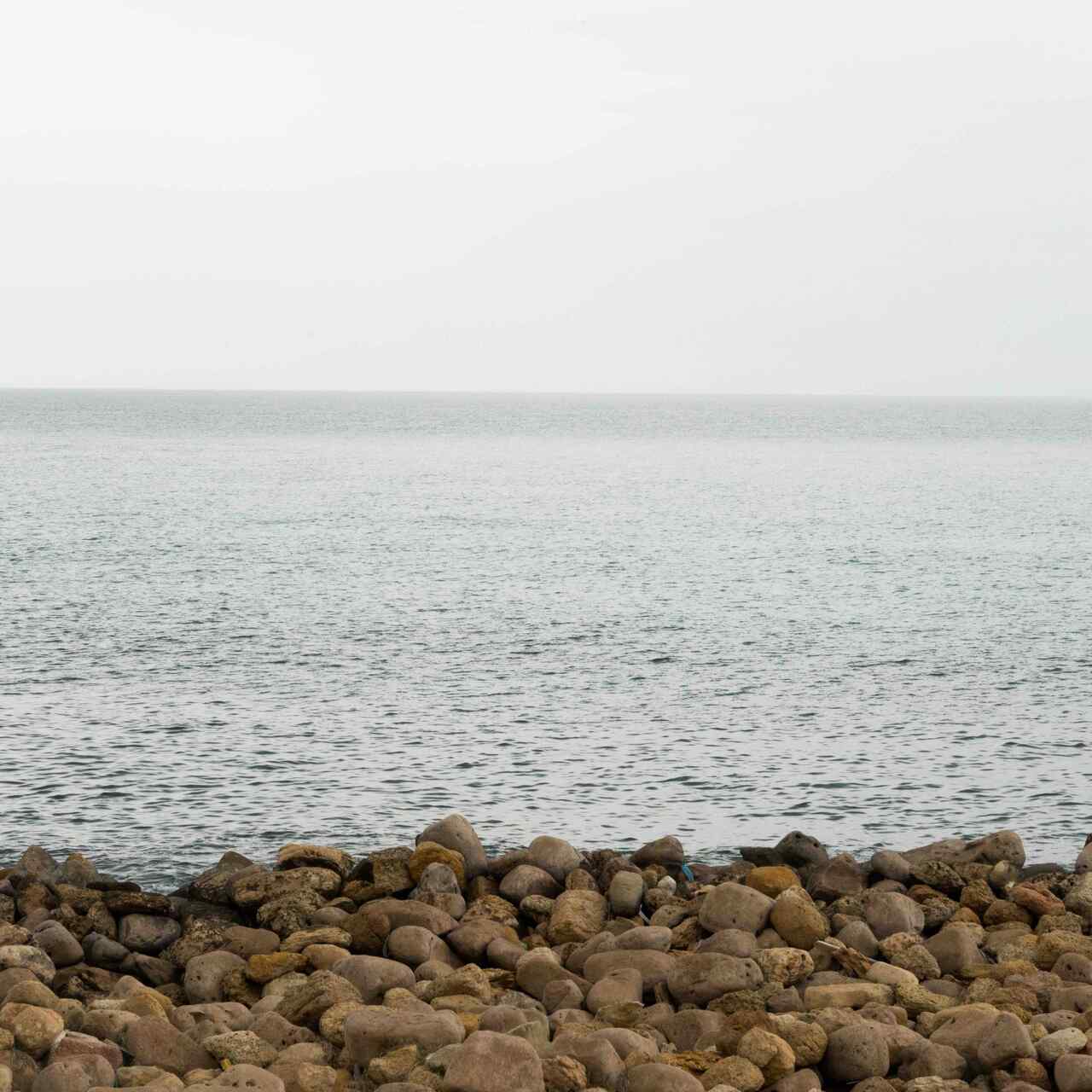
In February 2024, Italy finalised a deal with Albania to transfer up to 36,000 asylum seekers to detention centres in Albania each year.
Soon, the Italian government will begin detaining asylum seekers outside of EU borders.
The International Rescue Committee (IRC) has warned that the Italy-Albania deal is costly, cruel and counterproductive—and is likely to push people seeking safety onto more dangerous routes.
How does the Italy-Albania deal work?
The Italian Coast Guard and the Italian Navy will transfer up to 36,000 people who they rescue at sea outside the European Union’s territorial waters to detention centres in Albania. In Albania, those applying for international protection will be housed until their case has been decided. People who are granted asylum will be allowed to enter Italy, while others are likely to be returned to their country of origin.
The Italian government initially budgeted €650 million over five years for the deal, but total spending could reportedly exceed the €1 billion mark. Despite this investment, the opening of the detention centres has been delayed by more than three months.
Who does the Italy-Albania deal affect?
The Italy-Albania deal affects asylum seekers—theoretically excluding children and vulnerable individuals—who are rescued at sea by the Italian Coastguard and the Italian Navy and are nationals of countries that the Italian government considers to be “safe”. Individuals whose cases fit the criteria for “fast-track asylum procedures” will be transferred to detention centres in Albania.
The Italian government has said that “children, pregnant women and other vulnerable individuals” will not be deported to Albania. However, there are currently no guarantees or safeguards in place to identify these groups and ensure they are exempt from detainment and deportation.
Asylum seekers who have already arrived in Italy, those who arrive by land, or who are rescued at sea by NGO ships are not subject to the Italy-Albania deal.
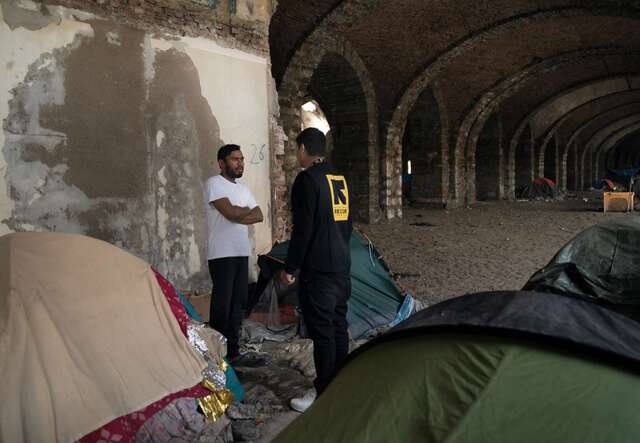
Does the Italy-Albania deal violate human rights?
The right to seek asylum is enshrined in EU and international law—people have a fundamental right to seek asylum, regardless of their country of origin or where they apply for asylum. The IRC has warned that the Italy-Albania deal poses great risks for people on the move.
“The Italian centres for asylum seekers in Albania should not exist in the first place,” explains Flaminia Delle Cese, Legal and Advocacy Adviser with IRC Italy.
“Moving people to closed centres away from EU soil jeopardises the basic human right to seek asylum, effectively detaining individuals for their attempts to find a safe haven and protection.”
People arriving in Europe should be treated with dignity and respect, in line with EU values and laws. Any migration partnerships with non-EU countries must be conditional on upholding dignity and fundamental rights of people on the move.
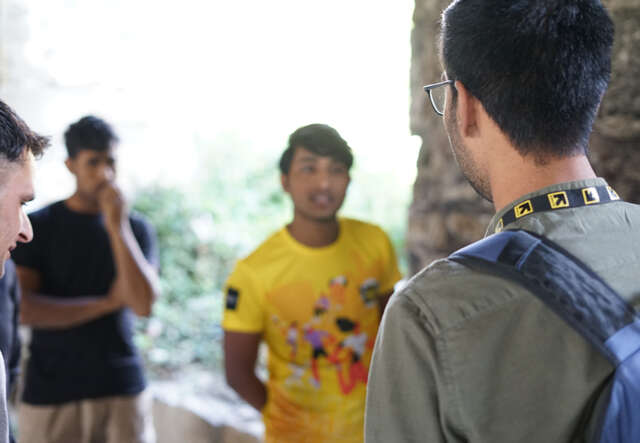
Externalisation of EU borders: A worrying trend
The Italy-Albania deal is the latest in a series of policies that aim to externalise the EU’s border management. Prior agreements, including the EU-Türkiye agreement, have exacerbated humanitarian and protection concerns for asylum seekers.
Elsewhere, the EU’s agreement with Libya has led to people on the move being intercepted by Libyan authorities and held in detention centres where they are at risk of gender-based violence, exploitation and other forms of abuse—which could amount to crimes against humanity, according to the UN.
The IRC is concerned that the EU and its member states are actively exploring further externalisation policies, viewing the Italy-Albania deal as a potential blueprint.
How should the EU respond to the Italy-Albania deal?
The EU’s moves to increasingly externalise migration management to third countries are counterproductive, and risk driving people onto ever more dangerous routes in search of protection.
Instead, it’s vital that the EU and its member states expand safe routes so that people are not forced to risk their lives on such treacherous journeys in the first place.
They must also ensure that any migration partnerships with third countries are conditional on upholding fundamental rights.
The EU's Asylum, Migration, and Integration Fund (AMIF) supports member states in improving their asylum and migration systems. While Italy has reportedly invested 65% of its AMIF funds in asylum projects, 35% remains unallocated. Italy should use the remaining AMIF funds to create a sustainable reception system that enhances the well-being of asylum seekers.
Italy can learn from Switzerland's approach of providing free legal counselling and representation to asylum seekers. Adopting similar practices would protect asylum seekers' rights and ensure a fairer process.
The UNHCR announced they will monitor the implementation of the Italy-Albania deal and ensure that asylum rights and international protection standards are upheld. It is critical that the UNHCR and independent human rights monitors be allowed unimpeded access to monitor the centre’s conditions, observe registration and asylum procedures, and talk to the individuals held in the centre.
How can I support asylum seekers?
The IRC is on the ground in more than 40 countries around the world, working to help people affected by crises to survive, recover and rebuild their lives. Our Resettlement, Asylum and Integration (RAI) networks help families fleeing violence and persecution find safety in new communities.
